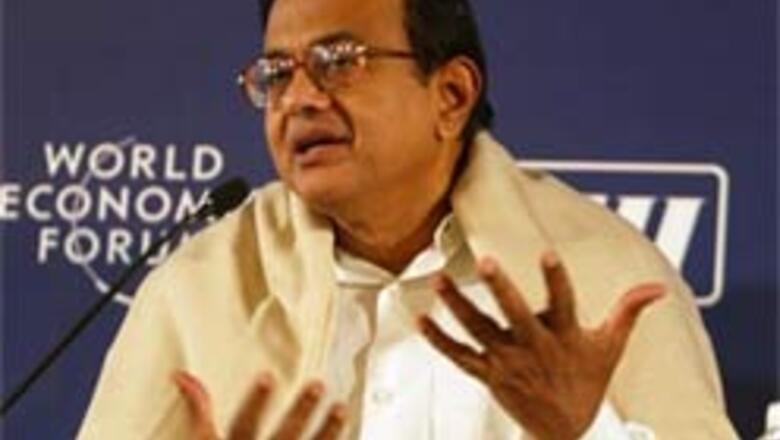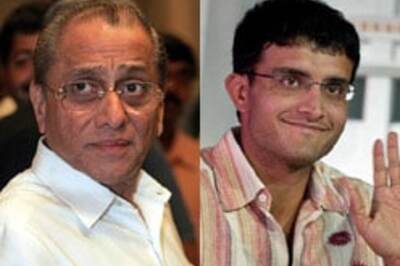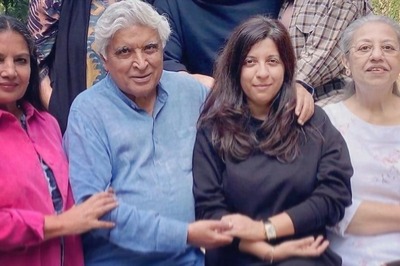
views
New Delhi: India on Sunday accused oil-producing countries of exploiting consuming nations, saying speculation-driven surge in global crude prices had cost the country at least one per cent economic growth.
"India could certainly have achieved 9-9.5 per cent growth... It has been robbed of at least one per cent of growth due to surge in oil prices," Finance Minister P Chidambaram said, adding that spurt in prices was certainly not supply-demand driven, but speculative.
If the world was serious about achieving the Millennium Development Goals to alleviate poverty in developing countries, one has to seriously ponder over the issue, he said at India Economic Summit, organised by the World Economic Forum and CII in New Delhi.
Citing the example of Russia, he said that country's budget was based on oil prices of $45 a barrel, but when the oil spiralled to $78 a barrel, the economy had a windfall.
"What is happening is certainly speculative in nature and hope that better sense prevails," so that developing countries like India and China, which have huge demand for oil imports, are able to sustain high economic growth, he said.
Chidambaram favoured an oil price band and allow the market forces to operate within that band so that the speculative increase in prices could be curbed to a large extent, providing a comfort level particularly to oil consuming developing countries.
Oil producing countries could suggest the upper band and consuming countries the lower band for the oil prices, he suggested.
Asked if oil prices could drop to $40 a barrel or surge to a whopping $250 a barrel, Chidambaram said he would prefer it to be in the price band of $40-50 and hoped this came true.
He was also critical of developed countries for voicing concerns on environmental issues in developing countries.
It was regrettable that no one raised concerns on environment when industrialised nations were in various stages of development.
Energy production is the most important pollutant and per capita consumption of energy in the United States was much higher than that in developing countries like India, he said, adding the developed countries should resort to energy conservation more vigorously.
Developed countries should also assist countries like India in acquiring technologies like clean coal and provide uranium for raising nuclear energy production.
Warning that the next war would be fought over water, Chidambaram said there was need to find local solutions to deal with water scarcity. Recycling and reverse osmosis technology for tapping seawater needs to be explored.
On the issue of inter-linking of rivers, he said it was wrong to say there was no political will. In fact, inter-linking of rivers faced several difficulties in India because of technological and ecological factors.
PAGE_BREAK
He, however, said there was possibility of linking southern and peninsular rivers but the study alone would cost over $50 million and take three years to complete.
On the issue of spread of aids in the country, he said it was one issue which had the potential to go out of hand.
He said the UPA government has taken a number of steps to create awareness on AIDS and for the first time the budget speech last year recognised the need to handle the issue.
On demographic changes, he said India was in an advantageous position as it was one of the few countries that would have a growing young population till 2050. This offered huge potential but it could be tapped only if the educational system is geared to meet the challenges.
However, the fear was that the aging developed countries may resort to increasing protectionism with the falling growth rates and not have liberal immigration policies.
Regarding the demand for making growth process more inclusive and equitable, Chidambaram said the democratic process in India by itself would ensure this.
Nearly 50 per cent of members of parliament do not get re-elected and ruling parties do get defeated in elections, he said, adding it was this factor that would force political leadership to make the growth more equitable.
The panel discussion, in which the Finance Minister participated, revolved around six risks that India faces according to WEF and CII.
The risks are loss of freshwater, oil peaks, economic impact of demographics, globalisation versus protectionism, climate change and HIV Aids and Tuberculosis.
India has 18 per cent of the world's population, but only four per cent of water resources, thus increasing the stress on fresh water services, a study by the two institutions said.
On oil prices, the study said while high oil prices are government subsidised, India is a net importer of oil and is unlikely to avoid the impact of sustained high oil prices if this triggers a global slowdown.
The study, on demographic profile of India, said the country faces the immense task of feeding, educating and employing its youthful position in the short term. Management of this would determine whether India enjoys a demographic dividend or liability.
On globalisation versus protectionism, it said Indian elites have become more globally interconnected, but the poor and lower middle-class are still disconnected and not feeling the benefits of globalisation.
Referring to environmental issues, the study said indirect impacts of global climate change could have dramatic effects on demand and investment patterns, as well as interrupting business operations and supply change.
The study also said India has the highest burden of both HIV and TB pandemics, with official estimates between 5.1 and 5.7 million people infected with HIV and 1.8 million cases of TB, mostly adults in the productive age group.
















Comments
0 comment